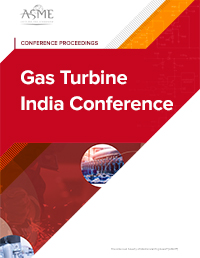Abstract
In the present study, a design point analysis of twin-spool turbofan engines is carried out, considering fuel injection of Aviation Turbine Fuel (ATF) in the initial stages of the compressor instead of combustor The two-phase compression brings about intercooling in the modified Brayton cycle, by injecting the atomized fuel directly in the initial stages of axial-flow compressor. The intercooling effect results in reduction of compressor work while reinforcing the enthalpy of combustion of fuel due to change of state of fuel from liquid to vapor state. This brings about an improvement in the thrust and thermal efficiency of the modified cycle. Effect of the intercooling is investigated for different performance parameters namely Fuel flow rate ṁf Total thrust Fs, Thermal efficiency ηth, Overall efficiency ηo and Modified cycle factor MCF over the varying compressor pressure ratio (CPR).
Injecting the fuel in the 2nd stage of compression results in percentage increase of total thrust by 21.14%, MCF by 31.35%, ηo by 14.92% and decrease in Fuel flow rate ṁf by 7%. While injecting the fuel in the 5th stage of compression results in increased ηo by 17.54 %, MCF by 37.30%, total thrust by 5.68% and decrease in Fuel flow rate ṁf by 22% at a CPR = 30 and Turbine Inlet Temperature (TIT) = 1260K vis-à-vis conventional cycle. Injecting the fuel in latter stages of compressor brings about a decrease of total thrust as well as efficiency.












